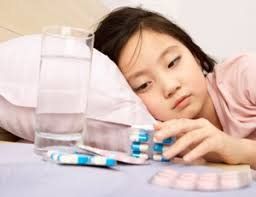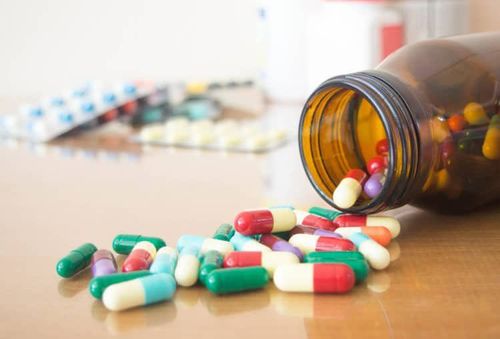This is an automatically translated article.
The article is professionally consulted by Master, Doctor Vu Quoc Anh - Department of Pediatrics - Neonatology - Vinmec Danang International General Hospital. Dr. Anh has nearly 10 years of experience as a resident doctor and treating doctor at Hue Central Hospital and Danang Children's Hospital.Usually, when babies have fever, cough, runny nose, sore throat, they are usually given antibiotics. However, when giving antibiotics to babies, many parents are afraid because the child is too young. So, should you give antibiotics to infants, what precautions should be taken when using antibiotics for babies?
1. What are antibiotics?
Antibiotics are drugs used to treat diseases caused by bacteria, thereby reducing the inflammatory response caused by bacteria.Each antibiotic will have a different effect on each type of bacteria. This is a drug that cannot be arbitrarily used without a prescription from a doctor, especially for infants. Medicines need to be used in the right dose, in the right disease, otherwise it will cause side effects such as: Diarrhea, vomiting, abdominal pain, indigestion ... more seriously can affect the heart, nervous system ..
.
2. When should an infant take antibiotics?
When an infant has a fever, cough, runny nose, etc., it can be a sign that the baby has an infection (caused by bacteria or viruses). If your child's illness is caused by a viral infection, it cannot be treated with antibiotics. For infants, antibiotics should only be given when the child has a bacterial illness (with evidence of infection) or the child is at high risk of infection.Some diseases are caused by bacteria and can be given antibiotics to infants to treat, which are:
otitis media, pharyngitis caused by group A beta-hemolytic streptococci, pneumonia, meningitis Brain Severe infections such as bacteremia Congenital syphilis Neonatal tetanus However, before giving an antibiotic to an infant, the doctor may order the necessary tests to help make an accurate diagnosis. the cause of the infection, thereby directing more effective antibiotic treatment.

3. Be careful when giving antibiotics to babies
In examination and treatment, giving infants antibiotics is always carefully considered by pediatricians to limit the side effects caused by antibiotics.Depending on the causative agent, the child will be prescribed different antibiotics with doses appropriate to the child's condition, age, body condition and weight to minimize adverse effects. desire. When antibiotics are indicated, the child needs to be used to treat a specific medical condition, including infants.
However, when giving antibiotics to infants, it is necessary to be cautious and note the following:
When the child has an infection and uses many antibiotics at the same time, do not mix antibiotics together when using. Discontinue use when there is no evidence of infant infection.

4. Consequences of giving infants antibiotics indiscriminately
Do not arbitrarily stop taking antibiotics when symptoms improve because it can cause antibiotic resistance. If the infant is given antibiotics after 72 hours and the condition does not improve, the child should be re-examined to re-evaluate the diagnosis and consider changing the appropriate antibiotic. With highly toxic antibiotics (such as Aminoglycoside, Chloramphenicol, Quinolone) should be cautious because they can affect the liver and kidneys. In the process of using antibiotics, if the child has digestive problems, should take the child to see a doctor for specific evaluation and advice, avoid buying and giving medicine to the child.
Please dial HOTLINE for more information or register for an appointment HERE. Download MyVinmec app to make appointments faster and to manage your bookings easily.














